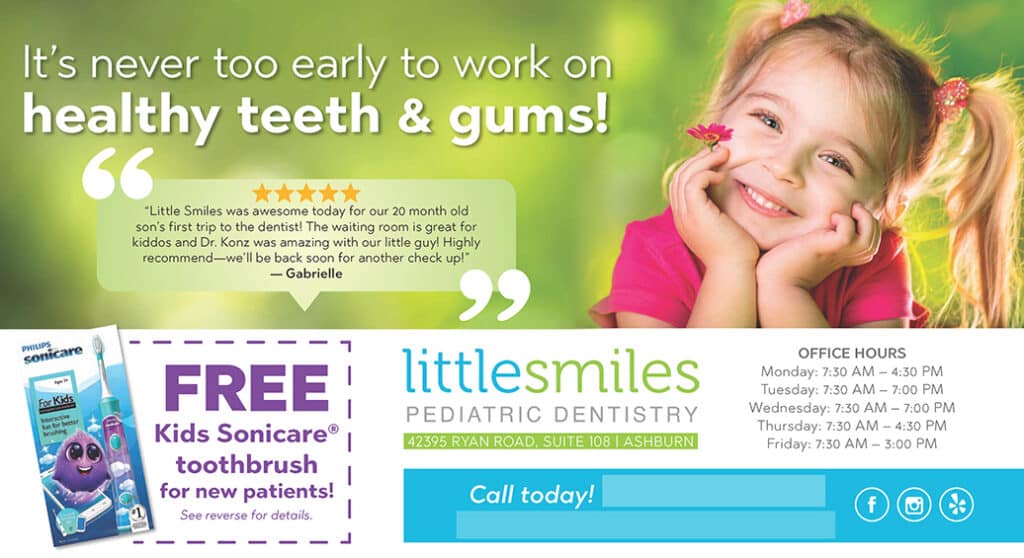In any line of work, it is essential to have a marketing plan. It will help provide assistance in establishing goals, identifying a target audience, and making the business stand out from competitors. There are plenty of different ways to market your dental practice, and we are here to let you know which strategies are guaranteed to help gain new dental patients, retain existing patients, and grow your practice.
Types of Dental Marketing Strategies
When establishing a marketing campaign for your dental practice, there are numerous approaches that can be taken. Here is our recommended list of options when considering your digital marketing efforts:
- Dental SEO
- Paid Advertising
- Facebook and Instagram Marketing
- Email Marketing
What is Dental SEO?
SEO stands for Search Engine Optimization, which is defined as “the process of improving your site to increase its visibility when people search for products or services related to your business in Google, Bing, and other search engines” by Search Engine Land. The last time you did an online search, you probably clicked on one of the first few results on the page, not one toward the bottom. High quality dental SEO helps guarantee that your practice’s website will rank at the top of the search results.
As Google updates their algorithm and “best practices,” your website will benefit from updates, too. Your website is constantly monitored by Google and other search engines to see where it should rank, so you should be sure to optimize it regularly and consistently. Some say that the most crucial optimization for your site is on-page SEO. For a better chance at improving your site’s on-page SEO, there are a number of factors to be considered.
- The keywords chosen for your site should be based on the language your potential patients are speaking to their search engine. Once you have determined that dialect, find keywords that are relevant to both them and the product or service you are offering– then incorporate those keywords into the copy of your site. It is in your best interest to keep it simple. 70.87% of keywords that are included in over 10,000 monthly searches contain just one or two words.
- The content on your website should be constantly changing, not only to appease Google, but to remain aligned with your potential customers’ preferences. Each page should tackle different subject matter. Repetition over multiple pages will hurt your website’s rankings. You should also refrain from using the same keyword on every page of your site. This is known as “keyword cannibalization”. Pages with the same keyword focus will end up competing with each other, inhibiting their ability to rank well on search engines.
Off-page SEO is contingent on the number of links, actions, and referrals to your site that appear on different webpages. More links contribute to more traffic to your site. If you have ever left online reviews on Google raving about a particular company, your review is contributing to that company’s off-page SEO.
Being tagged in a social media post or using an online hashtag will send more traffic to your site, making social media another off-page SEO contributor.
What is Paid Advertising?
Paid advertising is another highly dependable way to market your services online. Also referred to as PPC, or Pay-Per-Click, it is advertising that is paid for based on the amount of clicks you receive. There is an allotted budget set for each day that the campaign runs, and that amount is divided through clicks.
PPC Advertising works best in a scenario where a business is newly emerging on the market. It is also an excellent way to reach an audience that is not yet aware of the services you offer. Search and Display ads are the two main classifications of PPC advertising. While Search Ads are based on specific keywords, Display Ads are geared more toward distinct demographics.
If you choose to use Google Ads for paid advertising, your ad will often be the first result a prospective client will see on their search engine.
Social and Email Marketing
72.3% of the United States population is actively using social media, meaning there’s a high chance your audience is too. Social media is a much more personal form of marketing, as it not only allows you to portray your brand’s identity and stand out amongst the crowd, but also gives you a chance to engage with your customers and stay connected. Maintaining a presence on social media will help you to gain and retain customers.
Both organic and paid advertising can be achieved through social media, although paid ads are more apt to reach the specific demographic you are targeting.
As for Email Marketing, 60% of customers claim to have made a purchase after receiving a marketing email. Emails are a great way to provide customers with valuable information, tips, tricks, and the like. For example, an article about tips for cleaning your teeth after getting braces put on for the first time might be accommodating to your patients.
Much like social media, emails are a successful way to interact with your patients. You can remind them about upcoming visits, send reminders, or answer any questions they may need answered.
Creating a Marketing Strategy and Choosing a Technique
Whether you decide to use search engine optimization, paid advertising, or another strategy for your dental office marketing, there are a few initial steps that need to be taken. Your target audience will play the most pivotal role in your marketing efforts. Once you’ve determined who your audience is, spend time researching their demographics, psychographics, and even their dental health habits. Understanding their personality and lifestyle will assist in influencing their buying decisions.
Determine a budget based on the amount of time and money you are willing to invest to get your company’s name out to prospective patients.
To determine your business goals, it will be helpful to understand your place in the market.
Closely analyze your services, prices, and how you are promoting them. What are you selling? Are you selling it at a better or worse rate than your competitors? What kind or promotion or sales pitch will appeal most to your customer or prospective patient?
Once you have completed extensive research and have these questions answered, you should be able to narrow it down to a marketing strategy that will best suit your dental office and undoubtedly help you achieve your goals.
Partner With A Dental Marketing Agency
At Harris & Ward we understand that developing a marketing strategy for your dental practice can take a lot of time and effort. That’s why you can depend on our expertise to take the burden off of your shoulders.
We can combine any of our dental marketing services that suit your business’ unique needs to create a custom marketing campaign that will surely boost your online presence and build your brand. Contact us today to learn more about how we can help your dental practice!








